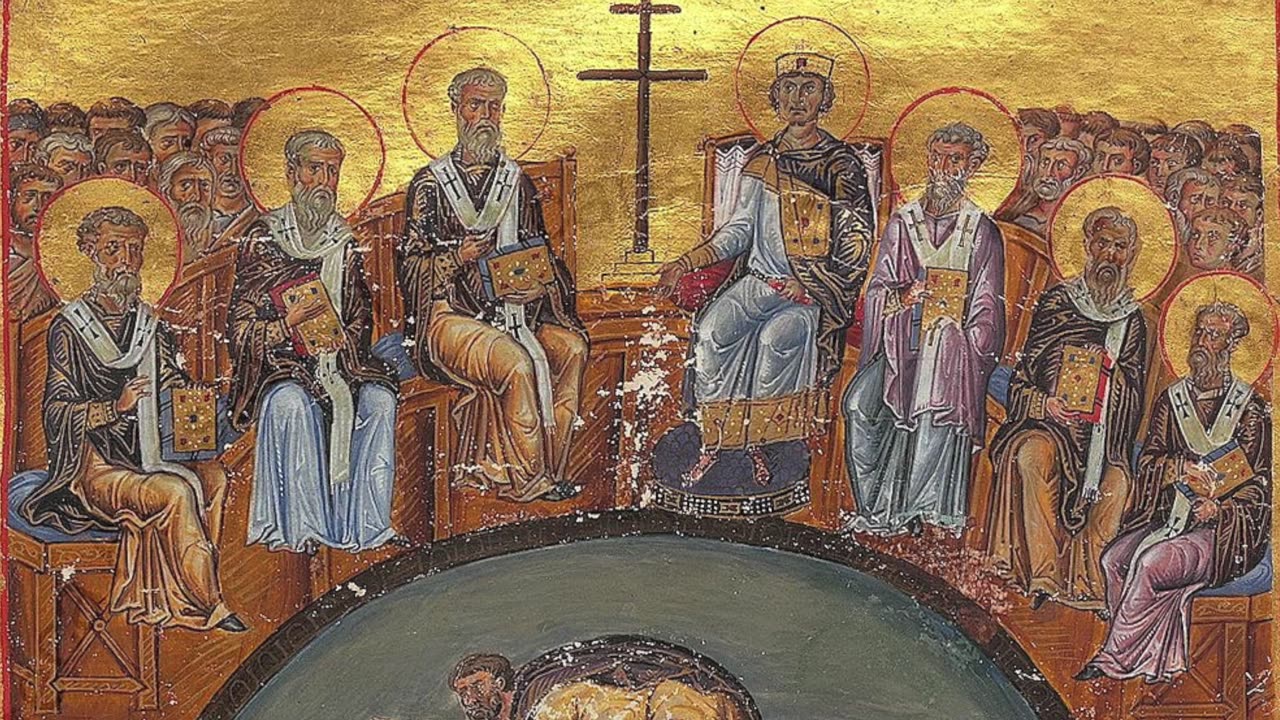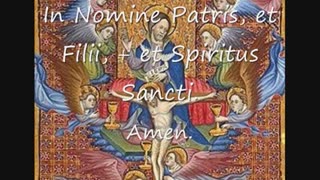Premium Only Content

The Moechian Controversy #EDU
The Moechian Controversy #EDU
THE MOECHIAN CONTROVERSY.
The theological and political dispute caused by the adulterous marriage of Emperor Constantine the Sixth (who reigned from 780 to 797 A.D.). It was designated from the Greek moicheia (Latinized, moechia ) for adultery.
In 795 A.D. Constantine the Sixth forced his wife, Maria of Amnia, into a convent and, with an Abbot Joseph officiating, entered into an adulterous union with his mother's lady-in-waiting, Theodote. The Patriarch of Constantinople Tarasius refused to bless the wedding, but tolerated the situation; he did not bar the emperor from the sacraments, nor take punitive measures against the Abbot Joseph. This shocking neglect of his patriarchal responsibility scandalized the Studite monks, who not only condemned the emperor and his consort, as well as Abbot Joseph, but also broke off communion with Tarasius. Their leaders, the abbot Theodore the Studite, and the monk Plato, were exiled and imprisoned, and the rest of the community were punished in a similar way. Two years later, Empress Irene seized the throne and recalled the Studites from exile. The Patriarch Tarasius then degraded Joseph and made peace with the Studites.
The issue was revived during the next reign. Emperor Nicephorus the First (who reigned from 802 to 811 A.D.) asked Patriarch Nicephorus the First (who reigned from 806 to 815 A.D.) to reinstate Joseph for signal services to the state. Again Theodore and his monks broke off communion with Joseph, and though still retaining the names of the emperor and patriarch in the diptychs during the Liturgy or Mass, studiously avoided contact with the Patriarch. Theodore did not object to restoring Joseph to his ecclesiastical post as oeconomus or business manager, but did deny his right to celebrate the Liturgy. The emperor decided to force the issue and insist that the Studites communicate with Joseph. On their refusal, they were condemned by a synod in 809 A.D., after which the emperor decided to make clear that he repudiated Constantine the Sixth’s adulterous union, and dissolved it posthumously. The dedicated Studites were exiled together with many other abbots and monks. Theodore appealed to Rome. Under Emperor Michael the First - Rangabe (who reigned from 811 to 813 A.D.) religious peace was reestablished. Through the good offices of Pope Leo the Third, the reforming monks were reconciled to the Patriarch and returned to their monasteries, and the Abbot Joseph was condemned once more.
Bibliography: h. g. beck, Kirche und theologische Literatur im byzantinisch en Reich 491–494, 515. p. j. alexander, The Patriarch Nicephorus of Constantinople (Oxford 1958).
[m. j. higgins]
#Adultery #Divorce #MoechianControversy #Documentary #History #Controversies #Byzantine #EasternRomanEmpire #Roma #StLeoIII #Papacy #Studites #Orthodoxy #CatholicChurch #StTheodore #StPlato #StTarsicius #RomanPrimacy #Orthodox #Catholic #Theology #Discipline #Sacraments #Communion #DivorceAndRemarriage #Synod
-
 1:47
1:47
ProVaticanus
12 days agoSS. PIUS PP. IX Declaravit Indulgentiam: In Nomine Patris, et Filii, + et Spiritus Sancti. Amen.
31 -
 LIVE
LIVE
Bitcoin Magazine
2 days agoThe Bitcoin Conference 2025 | Day 3 Livestream
1,284 watching -
 LIVE
LIVE
Dr Disrespect
2 hours ago🔴LIVE - DR DISRESPECT - WARZONE - NEW SEASON 4!
1,831 watching -
 LIVE
LIVE
StoneMountain64
6 minutes agoNew Downtown is HERE. MAX Battlepass Unlocked | Warzone Season 4
367 watching -
 LIVE
LIVE
The Charlie Kirk Show
47 minutes agoWhat a Difference a Year Makes + Court Blocks Tariffs + UK Revolution | Carney, Hammer, Leo | 5.29
2,942 watching -
 14:13
14:13
Matt Kohrs
49 minutes agoTrump’s Tariffs Ruled Illegal?! || The MK Show
6951 -
 LIVE
LIVE
Steven Crowder
3 hours ago🔴 BREAKING: Court Rules Trump Tariffs Illegal - Threatens to Destroy US National Security
26,557 watching -
 LIVE
LIVE
The Mel K Show
2 hours agoMORNINGS WITH MEL K - The Conspiracy to Commit Fraud on the People of the United States of America Exposed, Time to Face the Truth of Our Betrayal 5-29-25
1,045 watching -
 LIVE
LIVE
Due Dissidence
3 hours agoPiers Morgan DISMANTLES Israeli Ambassador, Elon OUT at DOGE, Gaza Dr's DEVASTATING UN Testimony
564 watching -
 LIVE
LIVE
Side Scrollers Podcast
1 hour agoPlayStation SOCIAL CREDIT SCORE + EA NUKES Black Panther Game + More | Side Scrollers LIVE
324 watching